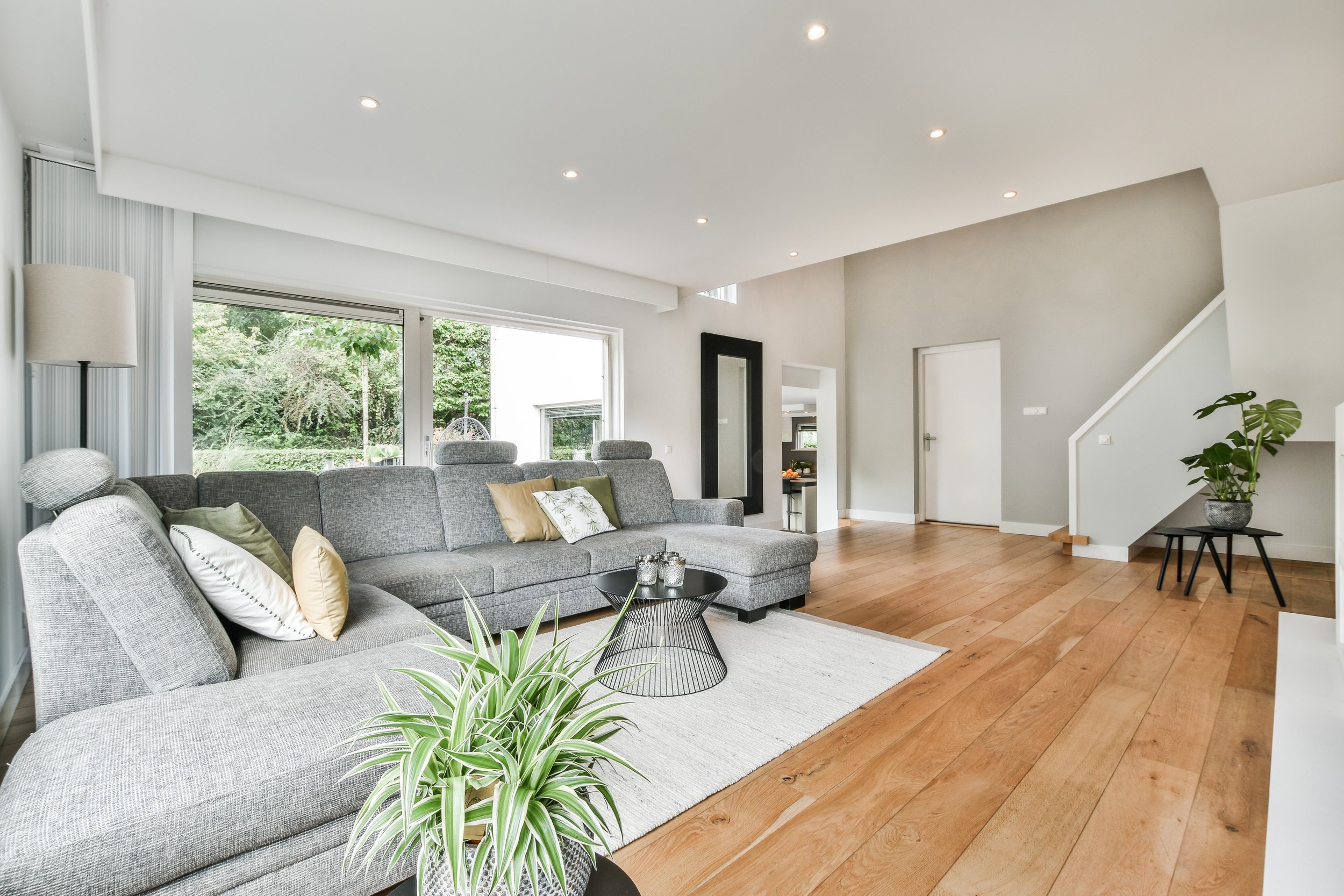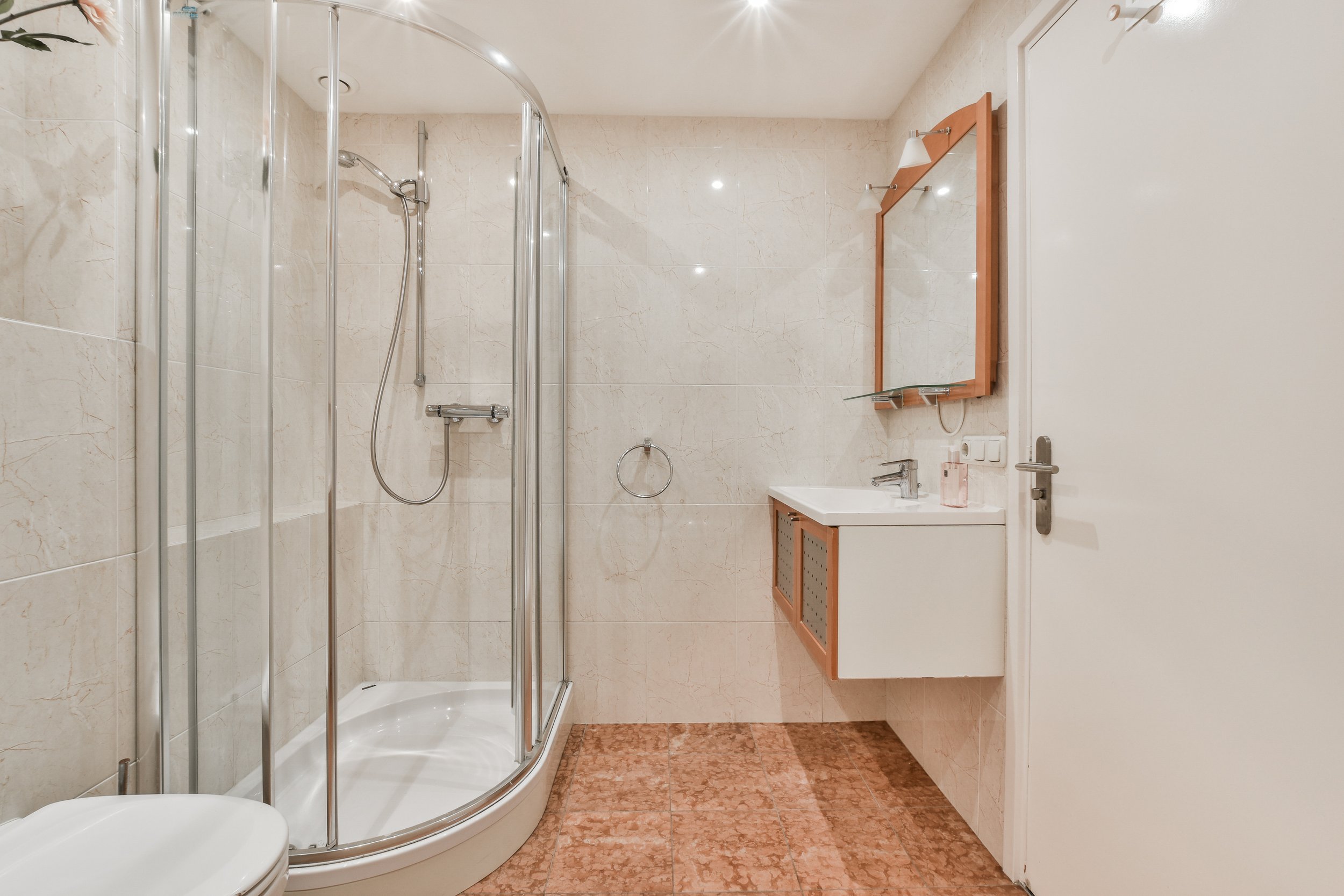
How Do I Choose a Basement Contractor in Sandy Springs, GA?
Finishing a basement in Sandy Springs can add livable square footage, raise resale value, and solve storage headaches. It can also expose weak planning, poor moisture control, and sloppy craftsmanship if the wrong crew shows up. The right contractor prevents headaches, protects your investment, and finishes on schedule. This guide outlines how homeowners in Sandy Springs, Atlanta, and nearby neighborhoods can choose with confidence.
Why local experience matters in Sandy Springs and North Atlanta
Basements in Sandy Springs run into predictable patterns: red clay soils with seasonal movement, high humidity from late spring through early fall, and a mix of older crawl-to-slab conversions and newer builds with partial daylight basements. A contractor who works weekly in Sandy Springs, Dunwoody, Brookhaven, Roswell, and Chastain Park will recognize those patterns. That background guides the plan for drainage, vapor barriers, insulation, and mechanicals so the new space spends its time being used, not dehumidified and repaired.
Heide Contracting’s team works across North Atlanta zip codes where finished basements must pass Fulton County inspections, meet the City of Sandy Springs permitting process, and follow current Georgia Residential Code for egress and smoke/CO protection. Local know-how speeds approvals and avoids rework.
Start with scope, budget, and must-haves
A clear scope prevents change orders and helps compare quotes. Define the space by function first: media room with surround sound, guest suite with egress bedroom and bath, home office with sound control, or a playroom plus storage wall. A realistic cost range in Metro Atlanta is commonly 60 to 140 dollars per square foot, depending on bath count, bar/kitchenette, and custom features. A 900-square-foot finish with a full bath and a modest wet bar often falls between 70,000 and 115,000 dollars. Build a 10 to 15 percent contingency for surprises like hidden plumbing conflicts or structural adjustments.


Code and safety essentials homeowners should verify
Basements look simple on paper. The safety items are not optional, and inspectors will check them:
- Egress: Any bedroom needs a compliant egress window or exterior door. Measure clear opening, sill height, and well dimensions before framing.
- Smoke and CO alarms: Interconnected and placed per code. In older homes, plan for wiring or wireless interconnects that meet code.
- HVAC capacity: Adding 800 to 1,200 square feet may require a load calculation. Tapping the existing system without the math often leads to hot summers and cold winters downstairs.
- Moisture control: A continuous vapor barrier on slab or subfloor, insulated rim joists, sealed penetrations, and correct dehumidification strategy.
- Electrical: Arc-fault and ground-fault protection where required, with dedicated circuits for media, treadmills, or a kitchenette.
A contractor who brings these up early likely runs a clean job and passes inspections the first time.
Vetting basement contractors: Sandy Springs edition
Too many homeowners search best basement finishing companies near me and stop at star ratings. Reviews help, but paperwork and process matter more. Confirm a current Georgia Residential Contractor license, general liability, and workers’ compensation coverage. Ask for a copy before signing. Verify they pull permits under their name, not the homeowner’s, unless there is a clear reason and guidance.
Request two to three local references with similar scope. Call them. Ask how the team handled dust control, noise, change requests, and final punch. If a contractor cannot provide a recent Sandy Springs or North Atlanta reference, that is a data point.
Design and preconstruction set the tone
A strong basement finish starts with measured drawings, a specification sheet, and a realistic schedule. The drawings should show wall locations, door swings, mechanicals, lighting layout, and egress solution. A spec sheet lists finishes by brand, model, and color where applicable: LVP thickness and wear layer, carpet weight and pad, tile series, trim profile, paint system, cabinet line, and plumbing fixture models. Vague allowances lead to frustration. Clear allowances prevent arguments and keep decisions aligned with budget.
Heide Contracting uses a structured preconstruction meeting to confirm dimensions, ceiling heights under ducts and beams, soundproofing targets, and finish selections. That meeting usually catches conflicts while changes are still inexpensive.
Moisture, drainage, and subfloors in Atlanta’s climate
Sandy Springs’ humid months magnify small moisture issues. The contractor should evaluate exterior grading, gutters, and foundation cracks before framing. A simple fix like a downspout extension can prevent a future baseboard replacement. On the inside, a quality basement finish often includes a dimpled underlayment or insulated subfloor panel, especially over older slabs. Where ceiling height is tight, a thinner system with a high-R underlayment may be better than sleepers. The right choice depends on slab condition, headroom, and budget.
If there is past water intrusion, solve it first. Interior drain tile and a sump with a quiet, high-head pump can protect a finished space. Skipping this step to save a few thousand dollars tends to cost triple later.
Sound control that actually works
Basements make great theaters and home offices, but sound can carry. For a media room under bedrooms, the best value is often a combination: resilient channel or sound isolation clips, plus mineral wool in joist bays, plus a double layer of drywall with a damping compound on the ceiling. For partition walls around a bedroom or office, use staggered studs or clips on one side with solid-core doors and perimeter caulking. These choices add a few dollars per square foot and measurably reduce noise.
Permitting and inspections in Sandy Springs
The City of Sandy Springs typically requires permits for basement finishes with framing, electrical, plumbing, or HVAC changes. Expect plan review, then staged inspections: framing and rough-in, insulation, then final. A contractor familiar with local inspectors knows how they prefer to see egress details, fire blocking, and vapor barrier terminations. That familiarity saves time and rework. Homeowners should receive a final inspection approval copy for records and resale.
Materials that hold up under kid traffic and weekend guests
Basements get hard use. Luxury vinyl plank with a 20-mil wear layer resists moisture and scratches. Tile works well in baths and around a bar. For stairs, many homeowners choose stained treads with painted risers or carpet for slip resistance. In living areas, moisture-tolerant trim and semi-gloss paint simplify cleanup. For bars and baths, stick to name-brand valves and drains with ready access panels for shutoffs. A few extra cleanouts and a backwater valve are cheap insurance in older neighborhoods.
Scheduling and real-life disruption
A typical 800 to 1,200-square-foot finish runs eight to twelve weeks once permits are issued. Specialty features like a full kitchen, custom steel, or a wine room add weeks. Noise peaks during demo and framing. Dust control, floor protection, and sealed plastic walls make a big difference to daily life. A contractor who cleans daily and communicates weekly will save a homeowner’s nerves.
Reading the estimate like a pro
Two quotes can look similar and cost very different in the end. Watch for missing items: egress window wells, upgraded electrical for a treadmill, dehumidifier provisions, paint quality, door hardware, bath ventilation ducted outside, and final cleaning. Check the allowance numbers for tile, LVP, cabinets, and lighting. If the allowances are unrealistic, plan on overages. Ask for a payment schedule tied to milestones, not arbitrary dates. A fair plan might be deposit, rough-in completion, drywall completion, trim/paint completion, then final after punch list.
Red flags that predict problems
- No permit plan or a request to work unpermitted for speed.
- Vague line items like “flooring package” with no specs.
- A price far lower than three similar quotes; it often grows later.
- No written warranty terms. A clear one-year workmanship warranty is standard.
- Pushy pressure to sign same day or cash-only discounts.
A simple path with Heide Contracting
Homeowners in Sandy Springs, North Buckhead, or Roswell call Heide Contracting because the process is steady and predictable. The team measures, sketches options, and provides a line-by-line proposal with clear allowances. They bring up code, moisture, and sound control before a deposit changes hands. During the build, a dedicated lead communicates updates and photo progress each week. Final walkthroughs include a punch list in writing and a clear warranty.
For homeowners typing best basement finishing companies near me and sifting through mixed results, direct conversations matter. Ask for a nearby project you can walk through. See drywall corners, door reveals, stair details, and how the team treated the rest of the home during construction. Quality shows in the small things.
Step-by-step checklist for choosing a basement contractor in Sandy Springs
- Define scope, budget range, and must-haves: rooms, bath count, egress, sound goals.
- Verify license, insurance, and that the contractor pulls permits in their name.
- Review drawings and a spec sheet with real product lines and allowances.
- Confirm moisture plan, HVAC load calculation, and sound control approach.
- Compare milestone-based payment schedules and written warranty terms.
Neighborhood-specific tips
Riverside and Heards Ferry homes often have partial daylight basements; egress is simpler with a full-height exterior door, but grading can complicate drainage. In older parts of Sandy Springs near Powers Ferry and Hammond, expect ductwork and low beams that force careful ceiling planning. Dunwoody and Brookhaven basements can have older cast iron drains; budget for selective replacement during rough-in. Roswell and East Cobb homes sometimes show slab cracks that are stable; an experienced contractor will distinguish cosmetic from structural and recommend sealing rather than overbuilding.
Getting value without regret
Spend where it matters long term: moisture control, egress, HVAC capacity, and sound attenuation. Save with smart finishes: stock cabinets for bars, durable LVP over a quality underlayment, and simple trim profiles. Prewire for the future with conduit runs for AV and data. Heide Contracting: basement finishing services in Atlanta, GA. A few hundred dollars now avoids fishing wires through finished walls later.
Ready to talk through your space?
Heide Contracting serves Sandy Springs, Atlanta, and nearby neighborhoods with clear pricing, clean job sites, and on-time delivery. Share photos, square footage, and a short wish list, and the team will provide a practical plan and budget range. Book a site visit to confirm details and get a firm, permit-ready proposal. Homeowners who prefer straight talk and solid work tend to call back for the next project.

Heide Contracting provides renovation and structural construction services in Atlanta, GA. Our team specializes in load-bearing wall removal, crawlspace conversions, and basement excavations that expand and improve living areas. We handle foundation wall repairs, masonry, porch and deck fixes, and structural upgrades with a focus on safety and design. Whether you want to open your floor plan, repair structural damage, or convert unused space, we deliver reliable solutions with clear planning and skilled work. Heide Contracting
Atlanta,
GA,
USA
Phone: (470) 469-5627 Website:
https://www.heidecontracting.com,
Basement Conversions
Instagram: @heidecontracting
Facebook: Heide Contracting